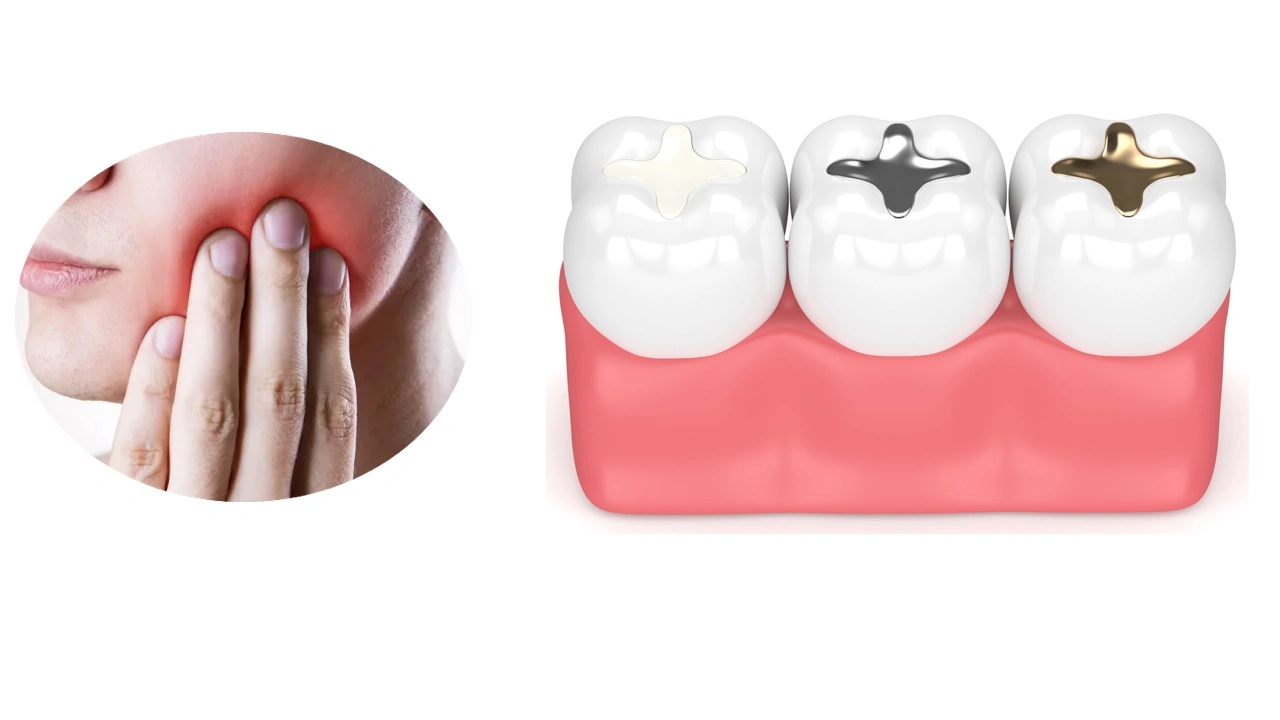Cavity fillings are a common dental procedure to treat tooth decay and restore the structural integrity of teeth. While generally considered safe and routine, some patients may experience jaw pain or discomfort following a cavity filling. This pain can range from mild to severe and can sometimes be concerning. However, understanding the potential causes and implementing effective management techniques can help alleviate the discomfort and promote a smooth recovery.
Causes of Jaw Pain After Cavity Filling
Several factors can contribute to jaw pain after a cavity filling:
- Prolonged Mouth Opening: During the dental procedure, the mouth is kept open for an extended period. This can lead to muscle strain and fatigue in the jaw area, resulting in temporary pain or soreness.
- Bite Adjustment: After a filling, the bite may need to be adjusted to ensure proper alignment of the teeth. This adjustment process can cause temporary discomfort or sensitivity.
- Dental Anesthesia: The use of local anesthesia during the procedure can sometimes cause temporary numbness or discomfort in the jaw area as the anesthetic wears off.
- Tooth Sensitivity: The filled tooth may experience sensitivity to hot, cold, or pressure, leading to mild to moderate jaw pain.
- Inflammation: The dental procedure itself can cause inflammation in the surrounding tissues, contributing to jaw pain or tenderness.
- Existing Dental Issues: Underlying conditions such as temporomandibular joint (TMJ) disorder or bruxism (teeth grinding) can exacerbate jaw pain after a cavity filling.
Symptoms of Jaw Pain After Cavity Filling
The symptoms of jaw pain after a cavity filling can vary in intensity and location. Common signs include:
- Dull, aching pain or soreness in the jaw area
- Tenderness or sensitivity when chewing or biting down
- Stiffness or limited range of motion in the jaw
- Radiating pain to the ear, temple, or neck area
- Difficulty fully opening or closing the mouth
These symptoms may be accompanied by other post-procedural discomforts such as tooth sensitivity or mild swelling.
Managing Jaw Pain After Cavity Filling
To alleviate jaw pain and promote healing after a cavity filling, consider the following strategies:
- Pain Medication: Over-the-counter pain relievers, such as acetaminophen, tramadol or ibuprofen, can help reduce inflammation and alleviate discomfort.
- Cold Therapy: Applying an ice pack or cold compress to the affected jaw area can help numb the pain and reduce swelling.
- Soft Food Diet: Consuming soft, easy-to-chew foods and avoiding hard or crunchy items can prevent further irritation and allow the jaw muscles to rest during the healing process.
- Jaw Exercises: Gentle jaw stretches and exercises can help relax the muscles and improve range of motion.
- Stress Management: Practices like deep breathing, meditation, or yoga can help reduce stress and promote relaxation, which can aid in the healing process.
If the jaw pain persists or worsens after a few days, or if you experience severe swelling, fever, or difficulty swallowing, it’s essential to seek medical attention promptly, as these could be signs of a more serious condition or complication.
Prevention and Self-Care Tips
To minimize the risk of jaw pain and promote a smoother recovery after a cavity filling, consider the following tips:
- Follow your dentist’s post-operative instructions carefully
- Maintain good oral hygiene by gently brushing and flossing
- Avoid chewing on the affected side until the numbness has fully subsided
- Apply a cold compress or ice pack immediately after the procedure to reduce swelling
- Practice relaxation techniques, such as deep breathing or meditation, to alleviate stress and tension in the jaw area
Statistics Related to Jaw Pain After Cavity Filling
- According to a study published in the Journal of Dental Research, approximately 25% of patients reported experiencing jaw pain or discomfort after dental fillings [https://journals.sagepub.com/doi/full/10.1177/0022034519834566].
- Research suggests that the risk of jaw pain increases with the complexity and duration of the dental procedure, as well as the number of teeth filled [https://www.ncbi.nlm.nih.gov/pmc/articles/PMC6654940/].
- A study by the American Dental Association found that proper pain management strategies, including the use of over-the-counter pain relievers and cold therapy, can significantly reduce jaw pain and discomfort after dental procedures [https://www.ada.org/resources/research/science-and-research-institute/oral-health-topics/pain-management].
By understanding the potential causes and implementing effective pain management strategies, individuals can find relief from jaw pain after a cavity filling and promote a successful recovery process. Proper communication with your dentist and adherence to post-operative instructions are key to minimizing discomfort and ensuring optimal oral health.

